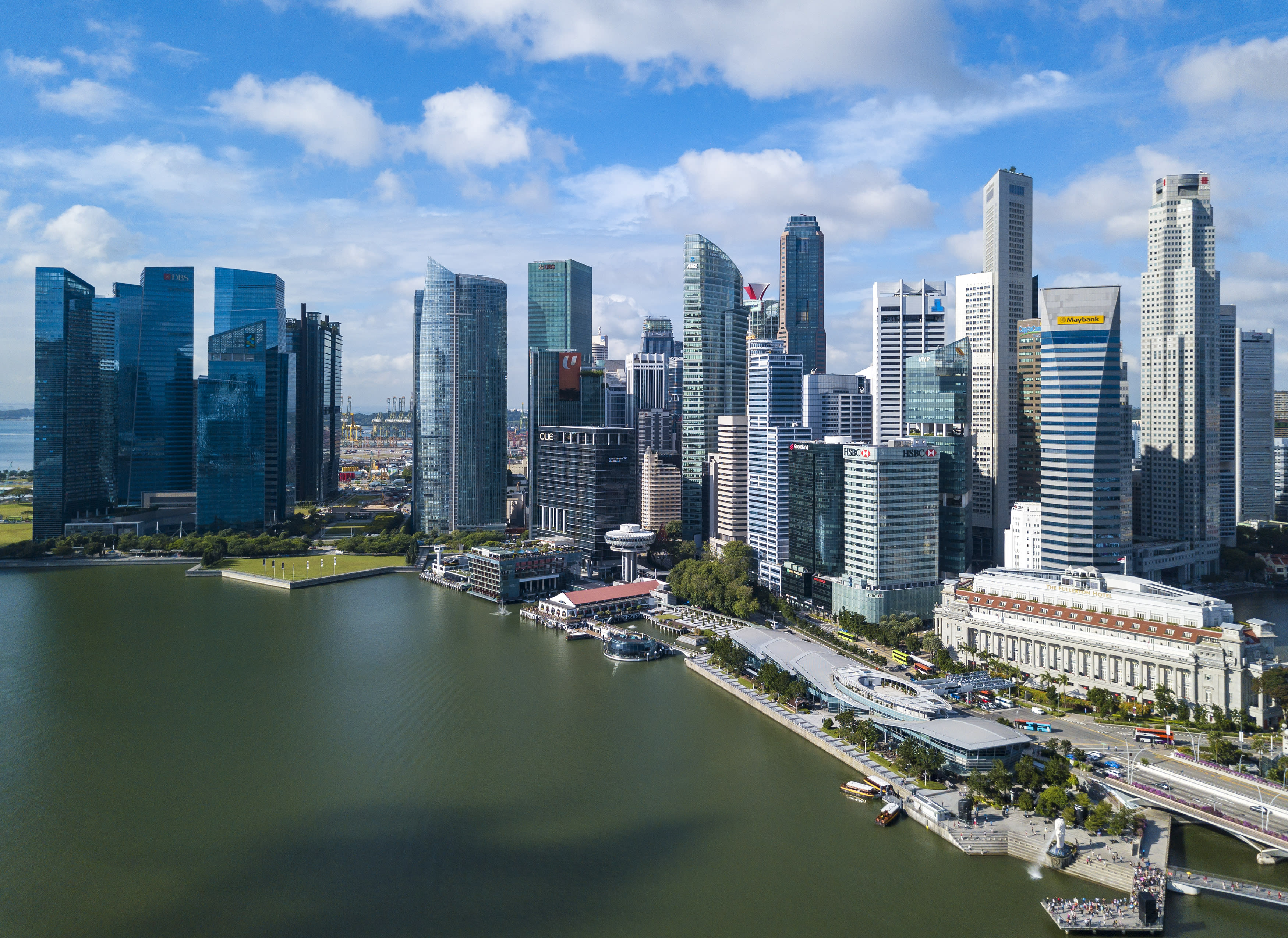
Aerial view of Singapore’s central business district and bayfront area.
BNBB Studio | Moment | Getty Images
Singapore’s markets have “done really badly” so far in 2020 and are currently “undervalued,” according to UBS Global Wealth Management’s Kelvin Tay.
“We do think where the (Straits Times’ index) is concerned, there is a lot of value in some of the stocks,” Tay, who is regional chief investment officer at the firm, told CNBC’s “Squawk Box Asia” on Wednesday.
In particular, he noted that major banks dominating the index are “trading close to book valuations.” Tay said, “we do think that that is actually a signal for us to actually start buying the market in Singapore.”
Goldman Sachs’ Timothy Moe, however, warns that the focus on banking stocks may be a detriment instead.
“The bigger story here really is one of a significant compositional shift in indices towards a greater emphasis on technology and so-called digital economy stocks,” said Moe, co-head of Asia macro research and chief Asia Pacific equity strategist at the firm.
This trend, he said, was “much more prevalent” in China and North Asia as compared with Southeast Asia, where index representation remains “very heavily weighted” toward banks.
“In the current environment of low interest rates, that basing is something which does not favor banks,” Moe told CNBC’s “Street Signs Asia” on Wednesday.
Against the backdrop of the worst economic downturn in years from the coronavirus pandemic, major central banks such as the U.S. Federal Reserve have taken drastic steps to keep financial markets afloat. Moves like bringing interest rates down can hit bank earnings.
“We still think the broader story within the Asian region is one of favoring North Asia broadly over South Asia,” the strategist said. He added that this includes being “overweight” on places such as China and South Korea.
Singapore’s Straits Times Index is among Asia’s worst performing indexes so far in 2020. It is still down more than 21% year to date as of Wednesday afternoon Singapore time, according to Refinitiv Eikon.
That comes as the country’s trade-reliant economy has been pummeled by the coronavirus pandemic. In the second quarter of 2020, Singapore’s economy contracted by 42.9% on an annualized, seasonally-adjusted basis compared to the previous quarter, according to the country’s Ministry of Trade and Industry.
— CNBC’s Yen Nee Lee contributed to this story.
Source: CNBC
